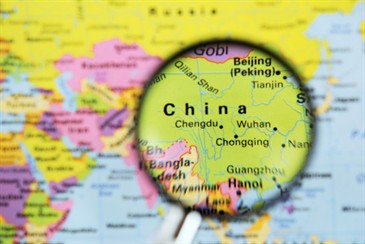Chinese Culture and Travel Part II
I have lived in the United States for over 8 years since 2005 and I am very fortunate to go back to Taiwan at least once a year. It has been very interesting to see how things evolve and scenes change over the years. In Year 2008 the Taiwan policy of travel restrictions for Mainland China citizens to Taiwan was modified; registered groups of Chinese tourists are able to visit Taiwan, and individuals are able to come since 2011.

My hometown Hualien is a beautiful city/county famous for tourism with two National Parks and beautiful Pacific coast. When I went back in 2010 I remember smelling cigarettes unexpectedly at a train station. I was surprised as it has been illegal to smoke in public for years and there are rarely any violations. So I started to look for the source and what I found was two men, talking to each other with mainland accent while smoking, regardless of the non-smoking sign posted there.
In a recent CNN article (Chinese tourism: The good, the bad and the backlash) released this spring, you will read and even watch ill-behaved and disrespectful Chinese tourists. A positive side of these tourists is that they are now equipped with income and ready to spend, but at the same time the report indicates they have a sense of entitlement to whatever they want. Even though I acknowledge that the unpleasant personal experience with Chinese tourists I shared was not the only one I have encountered, I still think what is described in the article is a bit too harsh. Also, as in any culture, individual behavior is the responsibility of individuals, and you have well-mannered and ill-mannered people across all countries and cultures. Good manners are NOT a specific cultural predisposition, but a personal one based on an array of factors in one’s own education and upbringing. I would like to provide more insight into Chinese culture / mentality from my perspective and make welcoming Chinese tourists not so scary.
For decades, for both the rich and poor classes, most of the Chinese people have been living in an enclosed environment; not only that they did not have the opportunity to see the world in person and experience different cultures and customs, the information channels, including TV, newspaper, internet… all media was heavily controlled and regulated. The money-can-buy-everything attitude is not out of their free will or choice, but the reality in the world they live in. While money has been the ultimate answer in many ways and has brought them some privilege and power, that does not make it right but only normal for them to have the same expectation when travelling. They don’t really mean to be disrespectful, but just have not learned how things function outside of their own world.
As mentioned in my previous blog, language barrier is one of the main reasons they choose to travel in organized group tours. It can be pretty scary to face the new and unknown while not being able to understand and being understood. In the organized groups, the group leader or tour guide are their go-to-people. If the tourists have concerns with the hotel room, meals, services… any kind of problems, they check with their guide or leader and expect him to take care of everything. The group leader or guide are very influential on the impression of the group to everything and everywhere they go. They know how to take care of their group if there are any issues. If you communicate with the group leaders and guides with respect and do the best you can to take care of their group, they can be your best advocates.
As the CNN article points out, better manners are a matter of better education and it will come with time. Education takes time, but you will not need to suffer between now and then while welcoming your Chinese guests. I believe mutual understanding is the key. Providing localized website and brochures is a great starting point to let the Chinese tourists know your appreciation and what you have to offer.
Chinese market and language resources
For general issues related to Simplified Chinese, visit our webpage on
Chinese Translation Quick Facts. To further explore issues specific to Chinese translation and Chinese localization, you may wish to review our previous blogs:
- Chinese Culture and Travel – Part I
- Mandarin the official spoken language in China and Taiwan
- Chinese Website Content key to growing Chinese Tourism
- Doing online Business in China
Some Chinese language services provided by GPI:
Globalization Partners International (GPI) has also published a highly detailed guide to Chinese website globalization targeting Chinese consumers in a white paper, Website Globalization and E-Business China, which is available via a free download. You may contact GPI at info@globalizationpartners.com or at 866-272-5874 with your specific questions about this market and your project goals. You may also request a complimentary Translation Quote for your project as well.
